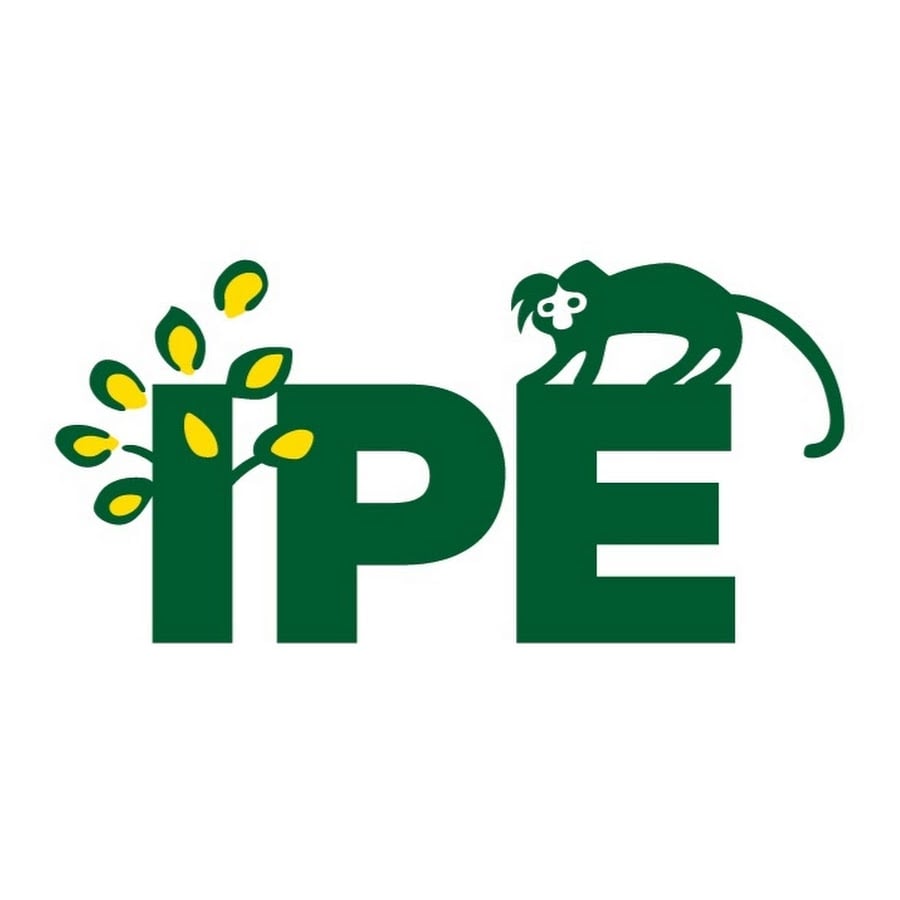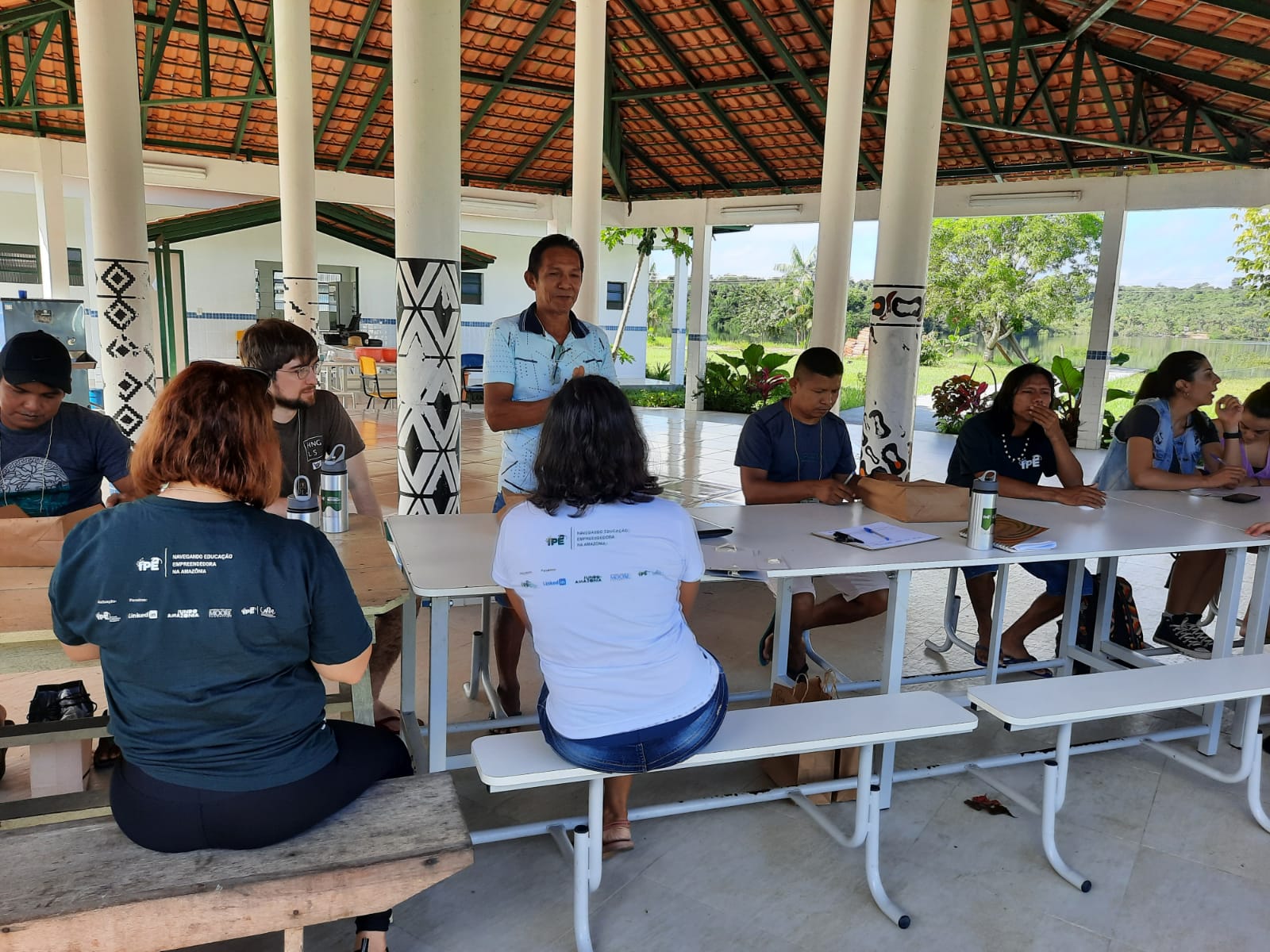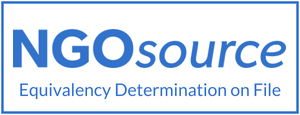::cck::1049::/cck::
::introtext::
 Ten volunteers from different cities in Brazil and with different professional experiences participated on the last holiday (June 15th to 19th/22) in a different action: supporting entrepreneurs in the Amazon to improve the results of their businesses through the exchange of ideas and clarification of questions related to the topic. The activity is part of the “Project Navigating Entrepreneurial Education in the Amazon”, carried out by IPÊ – Instituto de Pesquisas Ecológicas, in partnership with LinkedIn, the biggest professional social media in the world.
Ten volunteers from different cities in Brazil and with different professional experiences participated on the last holiday (June 15th to 19th/22) in a different action: supporting entrepreneurs in the Amazon to improve the results of their businesses through the exchange of ideas and clarification of questions related to the topic. The activity is part of the “Project Navigating Entrepreneurial Education in the Amazon”, carried out by IPÊ – Instituto de Pesquisas Ecológicas, in partnership with LinkedIn, the biggest professional social media in the world.
After a research during 2021, IPÊ found that the Puranga Conquista Sustainable Development Reserve (SDR), located in Manaus’ rural areas (Amazonas) and which protects almost 100 thousand hectares of the Amazon, has about 147 entrepreneurs, who work in more than 330 small business in the territory. This is the largest study on the topic about the region. Besides fishing and agriculture, which are subsistence activities, most of the 17 studied communities have tourism as a source of income, along with activities that are part of this entire chain, such as handicrafts, accommodation, food, hiking services and cultural experiences. All these activities were severely impacted by the Covid-19 pandemic and, consequently, so the income of several families. The state of Amazonas, the epicenter of the pandemic in Brazil, recorded a 66% drop in revenue from this sector, directly reflecting tourism within protected areas, compromising this socioeconomic activity and other chains associated with tourism indirectly.
Based on this diagnosis, the Institute and its partner LinkedIn selected 47 projects with growth and development potential, which underwent a new screening. Now, 21 businesses are guided by volunteer professionals who are supporting entrepreneurs in challenges related to logistics, communication, marketing, infrastructure and accounting.
“Economic activities that generate income within the Amazon territory are important for socio-environmental conservation, as they can be allies for residents to settle in their territories, developing sustainable practices that conserve biodiversity, and reducing the need to look for work in Manaus – which is generally risky and can lead to conditions of social and economic vulnerability”, says Nailza Porto, the project coordinator.
It is important to mention that riverside communities are not fully covered by socioeconomic and environmental policies. In addition to the current Brazilian scenario, aggravated by the dismantling of environmental policies, it is necessary to promote mechanisms and strategies aimed at community-based conservation, particularly seeking to overcome extreme events due to the climate crisis. Therefore, it is necessary to create innovative and more circular arrangements in face of the current moment, adopting strategies to awaken a systemic view of the importance of a healthy environment as a natural barrier to environmental and climate crisis events.
Volunteers in action
 One of the volunteers was Gabriel Leal de Barros (photo), chief economist at Ryo Asset, an investment company in Rio de Janeiro. The opportunity to get to know the project and the lower Rio Negro brought new perspectives to the professional, who was able to help entrepreneurs in essential topics such as accounting, pricing and the legal and bureaucratic issues involved in the development of a business. “Entrepreneurship in Brazil always has its challenges, they can be bureaucratic, capital, etc. In the Amazon, even with all the challenges – energy, logistics, seasonality – this is already happening and I could see it here, talking to these entrepreneurs. But I believe that the main point for us to achieve efficiency for the business is in the coordination of all this, so that the entrepreneur can have his business in a profitable way, that the product can reach the final consumer in a viable and, of course, in a sustainable way.”, said Gabriel.
One of the volunteers was Gabriel Leal de Barros (photo), chief economist at Ryo Asset, an investment company in Rio de Janeiro. The opportunity to get to know the project and the lower Rio Negro brought new perspectives to the professional, who was able to help entrepreneurs in essential topics such as accounting, pricing and the legal and bureaucratic issues involved in the development of a business. “Entrepreneurship in Brazil always has its challenges, they can be bureaucratic, capital, etc. In the Amazon, even with all the challenges – energy, logistics, seasonality – this is already happening and I could see it here, talking to these entrepreneurs. But I believe that the main point for us to achieve efficiency for the business is in the coordination of all this, so that the entrepreneur can have his business in a profitable way, that the product can reach the final consumer in a viable and, of course, in a sustainable way.”, said Gabriel.
Over the course of the four-day activity, the volunteers went from being teachers to mentors. Each one of them will closely monitor, over the course of a month, the businesses supported by the project, acting as sponsors of the initiatives. The goal is to assist in the business plan and action proposal for each project for the coming months. There are those who want to expand their ventures, others need financial adequacy, or even purchase instruments and equipment, in addition to facing issues of logistics and supply of energy and internet, major bottlenecks in the region.
To reach the communities, IPÊ uses its School Boat, the Maíra I, where the volunteers spent every day during the meeting days. The institute has owned the boat since 2003, it was a donation from the Martins Group, and it was renovated in August 2021 after the approval of the new project.
The experience gave the volunteers a new look at nature, helping professionals to get to know a region of Brazil that is often not included in tourist itineraries, although it is extremely rich in biodiversity, culture, and natural attractions.
The “Project Navigating Entrepreneurial Education in the Amazon” also has support from the LIRA/IPÊ project – Integrated Legacy of the Amazon Region.
::/introtext::
::fulltext::::/fulltext::
::cck::1049::/cck::


